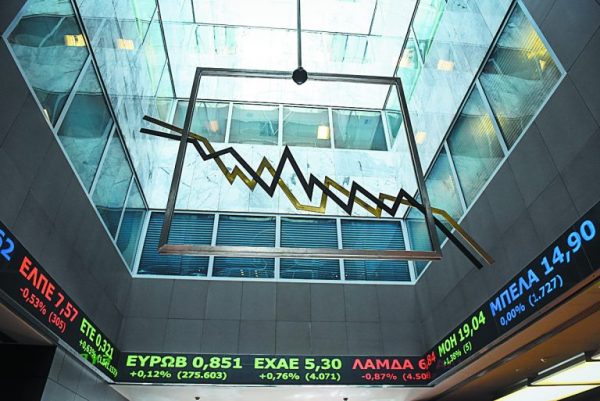
A strong blow to family budgets is caused by the wave of price increases that is flooding the Greek market. It is estimated that the average burden on households, only from increases in energy, rents and basic foodstuffs – expenses that are considered fixed – increases from about 59 euros to 166 euros per month!
The calculations made by “TA NEA Savvatokyriako” newspaper reveal the large burden on net income, which was strangled by salaries – and before the revaluations – inflated bills, high rents and taxes (indirect, direct).
The duration of the energy crisis is another source of uncertainty and concern for households, as wages have stalled in recent years and costs are rising.
The cost of housing is also unbearable – with rents having risen by an average of 23.8% since 2007 – and indirect and direct taxes are an additional “burden” on consumers’ pockets. It is indicative that the total revenues from excise duties on energy products in Greece reached 4.28 billion euros in 2019, when in 2008 it was around 2.8 billion euros.
Lifting weight from taxes, rents, products
Price increases ranging between 5% and 15% are estimated to be transferred to basic products in the near future. In September alone, inflation rose 2.2% as a result of the “rally” of prices for gas, heating oil and gasoline. And all this, when according to data from the Organization for Economic Cooperation and Development (OECD) in 2020 – the annual income of an employee in Greece was 15,763 euros (average salary after taxes).
At the same time, several companies say they are ready to embark on a new round of price hikes, arguing that they can no longer contain the extra costs involved in the production process brought about by imported inflation.
Indicative of the anxiety that prevails in the market is a recent survey of the Athens Chamber of Crafts, according to which half of companies estimate that there will be an increase in their prices / services by about 10% while 15% estimate that the increase will even exceed 30% (!) due to price increases in energy. The cost of housing is unbearable – with rents having increased by an average of 23.8% since 2007 (Nationwide E-Real Estates Network).
According to Eurostat data in 2019, 13.7% of real estate owners in our country spend more than 50% of their disposable income to cover the cost of housing, while the corresponding percentage of owners without borrowing reaches 15, 6%. And all this, at a time when the average Greek taxpayer is called upon to bear a fairly high tax and insurance burden, despite the reductions announced by the government.
The data of the liberal studies group KEFiM are revealing, according to which the average Greek works 75 days to pay the indirect taxes, 60 days for the insurance contributions, 43 days for the direct taxes and 1 day for the capital taxes. It should be noted that according to a survey by the Foundation for Economic & Industrial Research IOBE on the energy sector in Greece (April 2021) the total revenue from excise duties on energy products reached 4.28 billion euros in 2019, when in 2008 it was about 2.8 billion. euro. Indicative of the importance of energy taxes for government revenues.
The leadership of the Ministry of Development, on the other hand, states that it is monitoring the phenomenon of price increases in the market, emphasizing that the controls are continuous and estimates that in a few months the situation will begin to normalize.
It is recalled that recently the Minister of Development Adonis Georgiadis asked representatives of supermarkets to put their back in to the effort made to deal with the phenomenon of rising prices and not to pass to the final prices of products the skyrocketing cost of raw materials and international transport, while at the same time the Competition Commission carried out surprise checks on suppliers and retail companies of supermarkets.
Scorching costs for heating and electricity
The burden on households from rising energy costs is enormous. As can be seen from the examples of households processed by “TA NEA”, the cost of heating with oil is 45% higher than last year, while for electricity it is 13% to 13.5%. The increase in electricity bills is limited to this level due to the subsidy granted by the State but also the additional discounts provided by electricity suppliers. The rally of price increases in energy, according to the analyzes, is expected to slow down in the spring of 2022.
Winter is predicted to be heavy for households, who are called to put their hand deep in their pocket in order to keep warm and to meet the electricity needs of every home.
As for heating oil, according to the data of the Price Observatory of the Ministry of Development, the average nationwide price for October 15 – when the supply of fuel for the winter season (until April) began, was at 1.16 euros per liter. Last year the starting price was 0.798 euros per liter. According to expert calculations, a household that lives in an apartment of 40-50 sq.m. will need to burn 760 liters to heat up.
This year the cost will be at 881.6 euros when last winter a household spent 606.48 euros. That is, it will spend an additional 275.12 euros. A family of four living in more square meters to heat will have to consume 2,213 liters this winter season and the total cost will amount to 2,567.08 euros. Last year it paid 1,765 euros. The additional cost jumps to 802.08 euros.
Regarding electricity, as mentioned above, the additional charge is being cut due to the decision taken by the government to grant a subsidy. The amount credited to each monthly bill for the consumption of the first 300 kWh (kilowatt hours) per month amounts to 9 euros in September.
For each month from October, November and December the amount of the grant will be 18 euros. The doubling of the aid also reflects the forecasts made by the competent officials regarding the size of the price increases in electricity. However, the government has not ruled out the possibility of granting more aid if needed, ie if the increases continue. Estimates of electricity market players want the wave of price increases to continue in the first quarter of the new year.
Latest News

Athens Int’l Airport Wins Top Prize at Routes Europe Awards
The Routes business is focused entirely on aviation route development and the company's portfolio includes events, media and online businesses

IOBE: Income Gap Between Poor and Wealthy Greeks Widens
The findings in the analysis, entitled “Progressivity in Income Taxation in Greece, 2012-2021", paint a bleak picture for Greeks in the bottom half of the income bracket, warning that income inequality is growing

Study Finds 4 in 10 Greeks to Slash Easter Spending
This year, hit by persistent inflation, many Greeks will be dishing out less on food, drink and gifts for Orthodox Easter on May 5

ELSTAT: Overnight Stays in Greece Up in Feb.
The provisional monthly data revealed that arrivals at tourist accommodations amounted to 773,104 and overnight stays were 1,677,685

Electric Energy: Greece’s New Sustainable Export
Moreover, a surplus of generated electricity cannot be fully absorbed by domestic grids and this excess power finds eager buyers in the form of companies entering into Power Purchase Agreements (PPAs), willing to pay a premium for clean energy

IOBE Revises Greek GDP Growth Downward, to 2.1% For 2024
Annual inflation is expected to reach 3%, up from the previous forecast of 2.8%

Last Sections of 136km E65 Highway Inaugurated on Tues.
Athens to Karditsa drive time is expected to drop to two and a half hours (under normal conditions), and some three hours from Athens to Trikala

Reuters: Greece to Repay More Bailout Loans Ahead of Maturity in 2023
The country has relied solely on international markets for its borrowing needs since a third institutional bailout ended in 2018

Ag Min. Avgenakis: Greece-China Cooperation in Research, Education in Agri-Food Sector
Greek minister tours cutting-edge hydroponics and robotics facilities at the Chinese Academy of Agricultural Sciences in Beijing

Mini Holiday Season in Greece for Upcoming Orthodox Easter
Occupancy rates reach up to 90% domestically for accommodations open ahead of peak summer season













































 Αριθμός Πιστοποίησης Μ.Η.Τ.232433
Αριθμός Πιστοποίησης Μ.Η.Τ.232433